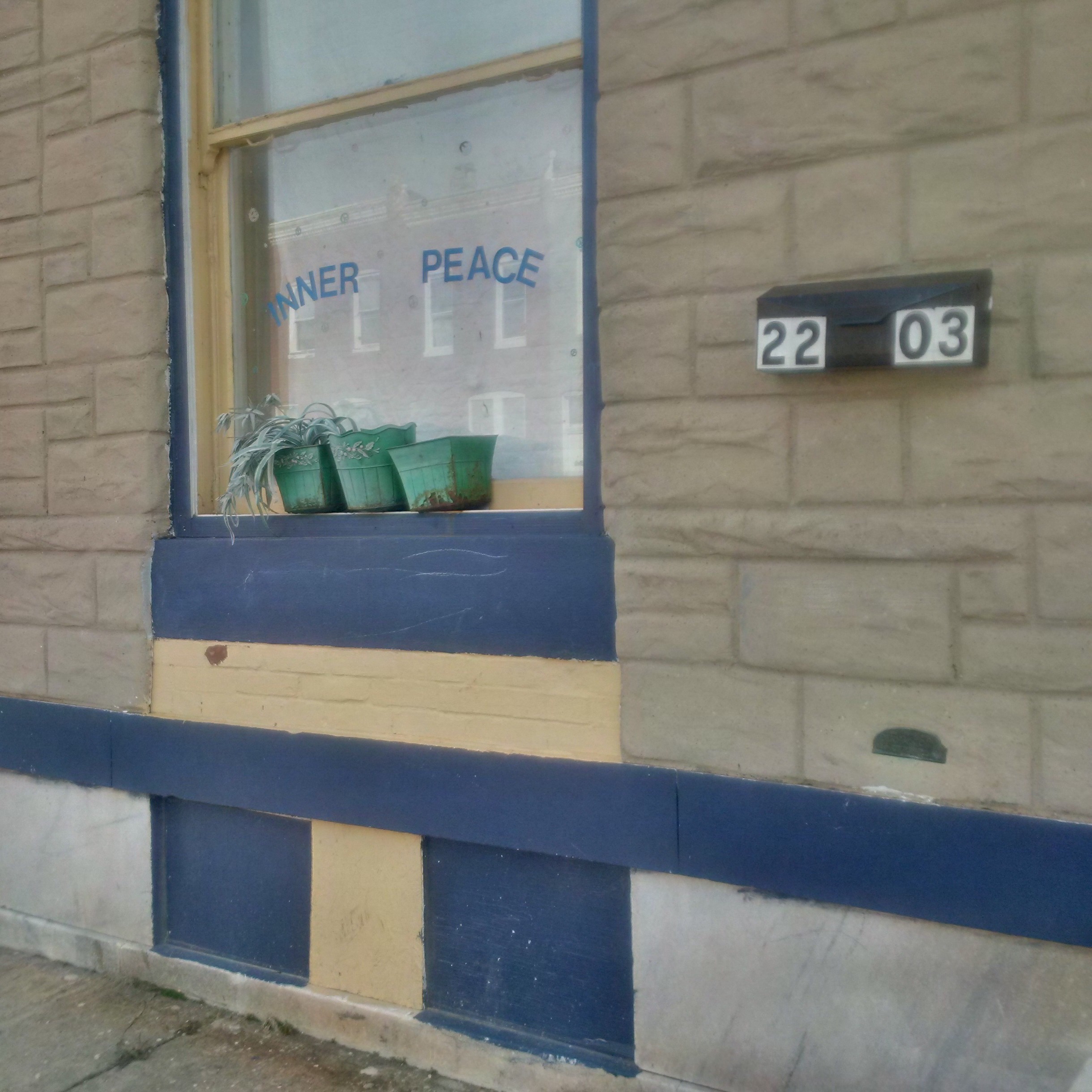Building collectives may be one way out of the mostly fragmented, abandoned and often chaotic communities in low income Black Baltimore and beyond. These collectives can be hubs that co-create communities with the intention to share something beyond money and a profit motive. We can envision collectives that include housing and business interests planning to anchor blocks by living and working with the existing community in the community. These collective businesses would include for profit and non-profits willing to work on the challenging issues facing Baltimore in all its sectors. They would not attempt to make a profit off the problems of the community. They would partner with existing residents and businesses and collectively vision a way to assure that any wealth that is gained from rebuilding the community, is equally shared by those who have lived, worked and learned in these communities over the years.
The rebuilding that has been going on in communities like East Baltimore do not attempt to build wealth for the people who have been living, working, praying, and learning there. The buying, rehabbing, and selling by speculators have benefited developers not from the area; or benefited local organizations supported by investment from capital not interested in sharing in rebuilding the wealth of the existing community. This is how gentrification occurs. When the wealth of the existing residents and businesses does not increase with the increase in the cost of the new amenities and housing, someone has to go. As long as we follow the capitalist market equation for exploitation of those without for a gain of those with, gentrification will continue in the way redevelopment is occurring in communities like East Baltimore and our city. The financing for development in these communities is sparse and when present, the interest rate is greater than standard loans. While we understand the story of ‘high risk’ communities, there is still a hefty profit margin for the community-minded investor. There is still the distinction of ‘their’ community and ‘our’ community. The separation still exists.
Baltimore city programs like Vacants to Value invites in small developers who can afford to rebuild a half a block. The city sells city-owned property for cheap and minimize the paper work and the permits for the developer. Because they have not been willing to work with individual residents, the One House at a Time program went into effect more than a year ago to do just that: work with individuals who could only afford to buy and rehab one house at a time. These rehabs are still more speculation than personal rehab (person buys, rehab, and lives/work in the building) and seldom work with existing community in a collective arrangement.
Rebuilding with a mindset of co-operatives and collectives still require a profit to survive, but are not motivated by the profit incentive; this is not its primary objective. There is a different set of values and ethics they bring into their work. Collectives such as VOLAR (Village of Love and Resistance) aim to do this. It’s mission is to co-create a cooperative community in East Baltimore owned by Black and Brown people to create opportunities for historical residents to acquire, rehab, and sell/rent property to build wealth. Residents can become the speculators in their own community, selling to friend, family or stranger. Low income people who have been historically exploited to build wealth for those with resources can become landowners and use their land to build wealth. This recipe of small and large developer coming into communities with little or no social capital, buying and rehabbing and selling and gaining profit needs to end. The ethic of VOLAR assures that affordable housing will be available, along with moderate income homes and that this speculation by local residents/businesses bring profit back to the individual resident and businesses. If residents/businesses are in the community, their capital will turn around in the community and slowly rebuild the economy of their community [with outside speculation the majority of the profit gets redistributed outside of the community in which the profit is made]. Building market rate homes would not fit into such a model because those able to afford a market rate house often desire market-rate amenities. When the area then builds an economy appeasing the desire of this group, displacement of people who cannot afford these amenities occur. In order for this not to occur, it requires a fairly narrow range of housing cost, attracting a similar set of amenity cost. This model allows capital to stay in and grow the existing community.
Collectives require relationships and trust-building between members. Whether it’s a residential or business collective, the different cooperative arrangements rest in a framework of trust and the principle that ‘we’re in this together’, ‘we share risk and we share gain’. This type of value framework distinguishes and resists a type of rebuilding present in the speculative way community redevelopment is occurring and has occurred, specifically in abandoned communities.
We need alternatives to the current ways we are rebuilding our abandoned communities that engage our affordable housing crisis. Not models that turn currently affordable housing complexes into mixed-income housing and displacing low income residents. We require models that are based in a different ethic than the current profit-driven one that drives development based on separate and unequal, divide and conquer, principles. Alternative models like community land trust also offer us alternative ways to rebuild-it keeps the wealth in the community and grows the existing community allowing historic residents to stay if they choose. In Baltimore we are still waiting on the city government to get on board with this model and financially support alternatives. Without alternative like this and VOLAR, everything remains rhetoric about rebuilding community for its residents while low income Black Baltimore continue to be displaced because they cannot afford to stay and participate in the ongoing changes across the city.
… justice is really love in calculation. Justice is love correcting that which revolts against love.
Dr. Martin Luther King
